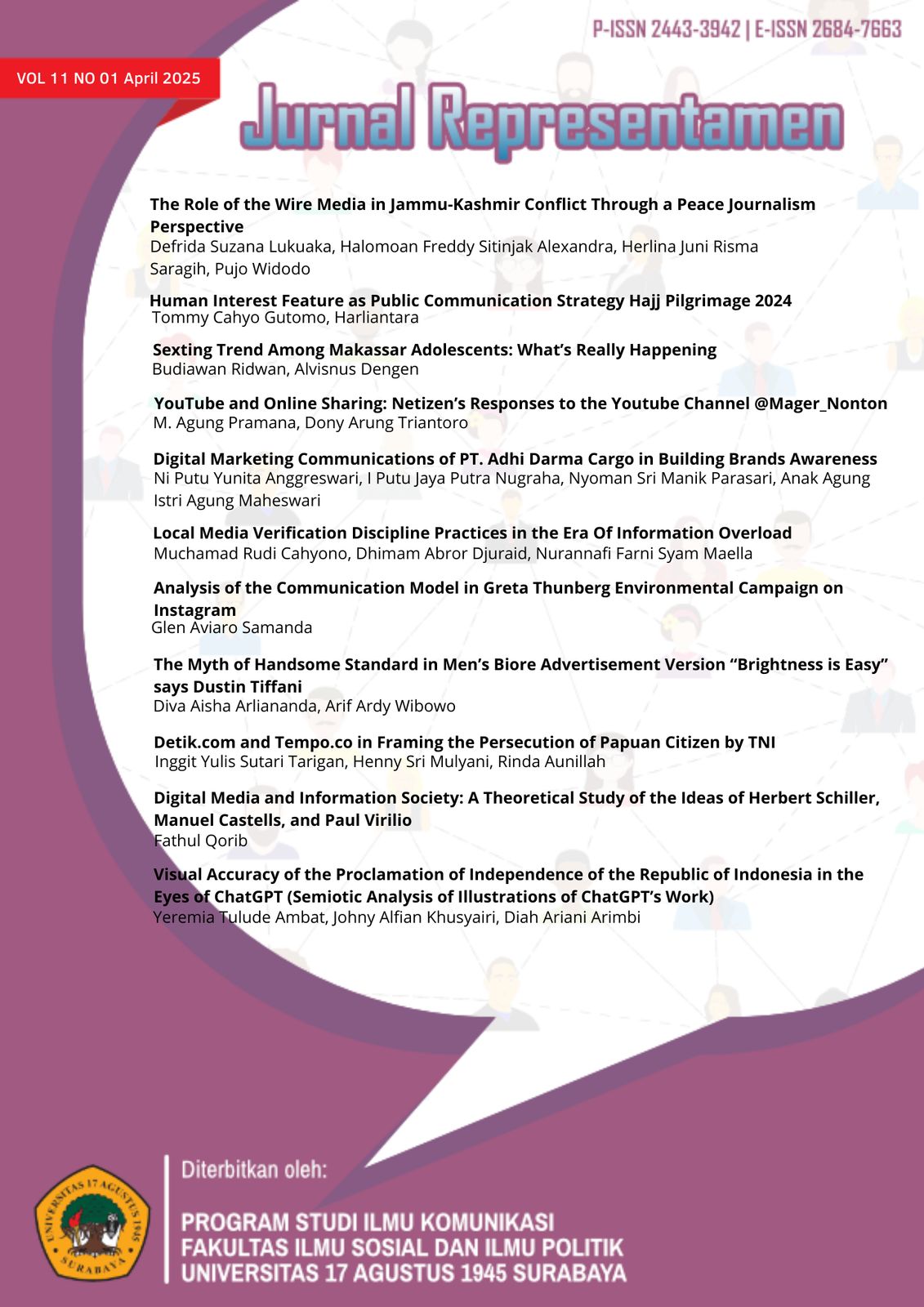The Myth of Handsome Standard in Men's Biore Advertisement Version "Brightness is Easy" says Dustin Tiffani
DOI:
https://doi.org/10.30996/representamen.v11i01.12715Abstract
Media has an important role in conveying information to audiences related to products by companies, one of which is through advertising. By incorporating a sense of humanity or representing social reality in its packaging, advertisements will become more attractive. The Men's Biore advertisement version "Bright is Easy" by Dustin Tiffani is one that carries social issues. The ad brings the concept of handsome standards to the story's packaging. Handsome standards are a standard concept of good looks given to men by society. The surrounding environment will more easily accept someone who meets the standard of good looks. This research aims to determine whether the advertisement wants to break the concept of handsome standard that exists in society through the selection of actors. The research method used is descriptive qualitative using Roland Barthes's semiotic analysis with three aspects of signification, namely denotative, connotative, and myth, through several selected scenes in the advertisement. The results show that the advertisement still shows the discrimination experienced by someone who does not meet the standard of good looks. Other standards must be met by the main character to be accepted by the surrounding environment. The discrimination shows the social demand to at least be what has been prevailing in society. The ad conveys a message about the self-confidence that everyone should have through the light effect that appears after the main character washes his face using Men's Biore products. This confidence makes the main character more accepted by the surrounding environment. In this case, the advertisement also builds the social construction of beauty or good looks standards among the community as the times evolve. Keywords: Advertising, Handsome Standard, Masculinity, Roland Barthes, Semiotics.Downloads
Downloads
Published
Issue
Section
License
Authors whose manuscript is published will approve the following provisions:
The right to publication of all journal material published on the jurnal representamen website is held by the editorial board with the author's knowledge (moral rights remain the property of the author).
The formal legal provisions for access to digital articles of this electronic journal are subject to the terms of the Creative Commons Attribution-ShareAlike (CC BY-SA) license, which means Jurnal Representamen reserves the right to store, modify the format, administer in database, maintain and publish articles without requesting permission from the Author as long as it keeps the Author's name as the owner of Copyright.
Printed and electronic published manuscripts are open access for educational, research and library purposes. In addition to these objectives, the editorial board shall not be liable for violations of copyright law.











